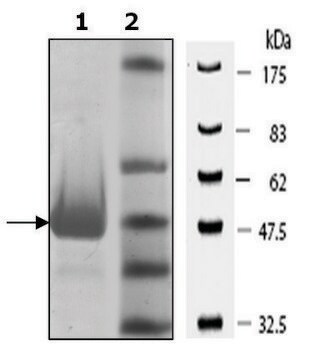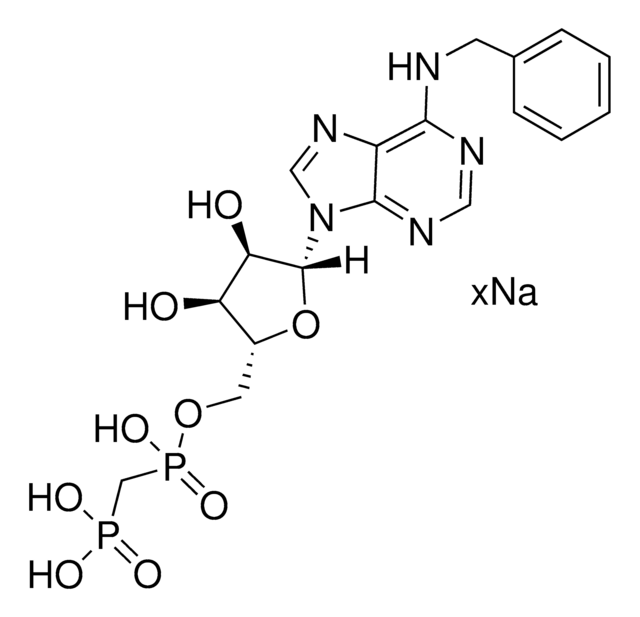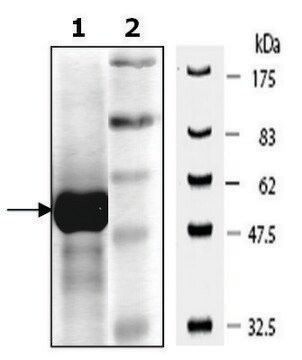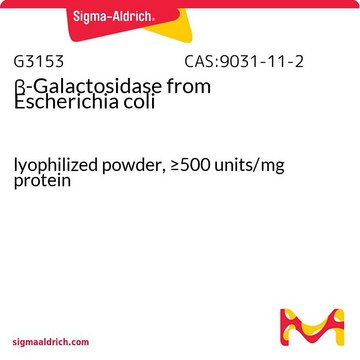SRP0413
PKLR Var1 active human
recombinant, expressed in E. coli, ≥43% (SDS-PAGE)
Synonym(s):
PK1, PKL, RPK, pyruvate kinase, liver and RBC
Sign Into View Organizational & Contract Pricing
All Photos(1)
About This Item
Recommended Products
biological source
human
recombinant
expressed in E. coli
Assay
≥43% (SDS-PAGE)
form
aqueous solution
mol wt
63 kDa
packaging
pkg of 20 μg
storage condition
avoid repeated freeze/thaw cycles
concentration
0.76 mg/mL
NCBI accession no.
UniProt accession no.
shipped in
dry ice
storage temp.
−70°C
Gene Information
human ... PKLR(5313)
General description
PKR (GenBank Accession No. NM_000298) full length, amino acids 2-574 (end) with N-terminal His-tag, MW=63 kDa, expressed in an E. coli expression system.
Storage Class Code
12 - Non Combustible Liquids
WGK
WGK 1
Flash Point(F)
Not applicable
Flash Point(C)
Not applicable
Choose from one of the most recent versions:
Certificates of Analysis (COA)
Lot/Batch Number
Don't see the Right Version?
If you require a particular version, you can look up a specific certificate by the Lot or Batch number.
Already Own This Product?
Find documentation for the products that you have recently purchased in the Document Library.
Steven T Russell et al.
Experimental cell research, 315(1), 16-25 (2008-11-01)
Treatment of murine myotubes with high glucose concentrations (10 and 25 mM) stimulated protein degradation through the ubiquitin-proteasome pathway, and also caused activation (autophosphorylation) of PKR (double-stranded-RNA-dependent protein kinase) and eIF2alpha (eukaryotic initiation factor 2alpha). Phosphorylation of PKR and eIF2alpha
María J Bullido et al.
Neurobiology of aging, 29(8), 1160-1166 (2007-04-11)
Sporadic Alzheimer's disease (AD) appears to be the consequence of the interaction between combinations of genes and environmental factors (for example virus infections). To test this hypothesis, we are examining human genes relevant to herpes simplex virus type 1 (HSV-1)
Our team of scientists has experience in all areas of research including Life Science, Material Science, Chemical Synthesis, Chromatography, Analytical and many others.
Contact Technical Service








